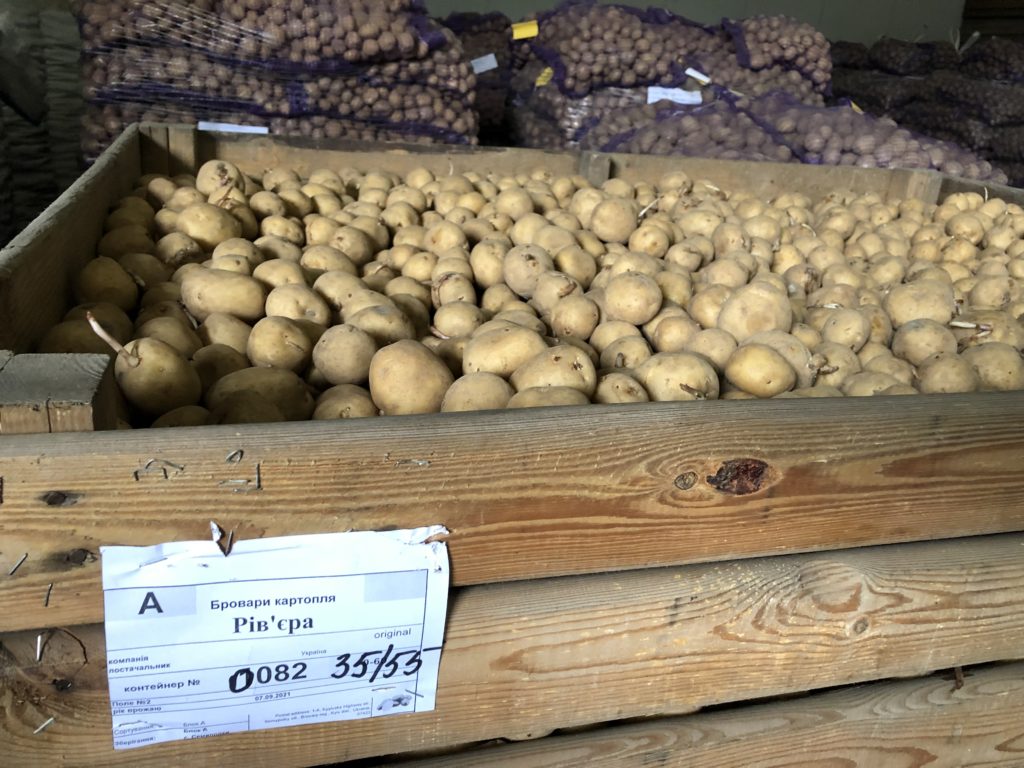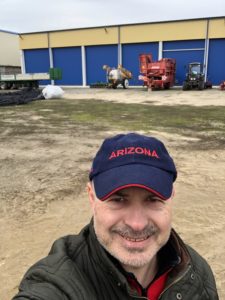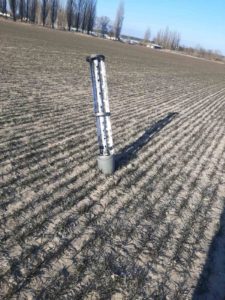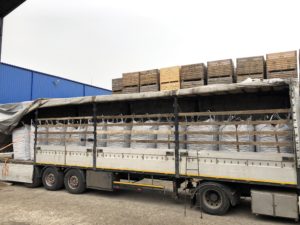
How Ukraine-Russia war is affecting potato production
When the Ukraine-Russia crisis began at the end of February, Russia’s actions took the world by surprise.
Reactions came swift and hard, as countries around the world imposed economic sanctions aimed at crippling the Russian economy. The repercussions and reactions to those actions can be felt globally. Grain exports have slowed, raising commodity prices higher. The cost of energy and food has skyrocketed, and many economies have hit record high levels of inflation. What does all this mean in the world of potatoes?
Too dangerous to plant for Ukrainian potato farmer
Nick Gordiichuk, managing director of Agrico Ukraine and vice-president of the Ukrainian Potato Growers Association, farms 600 hectares (approximately 1,500 acres) on two separate farms. He grows winter wheat, corn and sunflowers, but most of his land is dedicated to the production of seed potato.
Divided unevenly, the first is a 100-hectare farm in Brovery near Kiev. The second, a 500-hectare farm dedicated to seed potato production, is located in the Chernihiv area in Andriivka.

When fighting began Feb. 24, Gordiichuk fled to Romania with his wife, mother and three daughters. He returned home alone a couple of weeks later. The 100-hectare farm near Kiev was deemed safe enough to return. But the second farm, the 500-hectare farm devoted to seed potato production, is occupied by Russian troops. At the time of writing, it was too unsafe to return to the region.
Work started at farms around Kiev, but quickly stopped when mines and unexploded bombs were discovered in the fields. Areas in the east and south of the country, and areas around Kiev, will be difficult to farm, said Gordiichuk. But farms in the west of the country should be accessible.
But even if farmers could get in their fields, they face further challenges that keep them from getting planting season off to a good start, said Gordiichuk, pointing to the availability and price of fuel, as well as transportation costs as significant issues.
“Drivers do not want to drive to temporarily occupied areas,” he said.
Unfortunately, many of Gordiichuk’s seed potato stores are located in these areas.

The unavailability of fertilizer and crop protection products is also posing significant challenges for farmers. Finding labor is also a challenge, as at last count, 25% of Ukraine’s population has been displaced. Some 7 million people are considered internally displaced, while another 3 million left the country entirely.
Gordiichuk is particularly concerned about finding laborers who can manage heavy equipment. “There are not enough workers,” he said. “Tractor drivers were mobilized for the army.”
Ukraine farmers are also facing liquidity challenges. Those who had wheat and other grains to sell in the spring are stuck with the grain, as ports in Odessa are completely blocked. “The banks are reluctant to finance farmers of farms when you have a war operation in the country,” said Gordiichuk.
Potato production in Ukraine
Ukraine is the fifth largest producer of potatoes in the world. Annually, the country produces approximately 20 million tonnes, similar to the U.S. Most of that, however, is grown in small-scale, backyard plots for domestic consumption, explained Gordiichuk, who is one of just 20 seed potato producers in the country. Only about 55,000 hectares are under commercial production.
Ukraine’s main export market was Russia, said Gordiichuk, but that market closed in 2014 when aggression first began. In fact, today, Ukraine doesn’t export any potatoes. The European Union has been closed to the country since 2002 due to three quarantine diseases. Gordiichuk says the phytosanitary system has not been functioning since the collapse of the Soviet Union. However, the country is working with the EU on various projects in an attempt to harmonize with EU standards. They hope the EU will become an export market in the near future.

Cedric Porter, editor of World Potato Markets, offered a more global view of the war’s impact on global potato markets. To address potential seed potato shortages in Ukraine, Porter said the Polish Potato Association is working with the Ukrainian Potato Producers Association to coordinate the supply of tablestock potatoes for the civilian population, as well as seed potatoes for growers. As it’s planting season in Ukraine, it’s a difficult time for so many people to have to flee the country, he added. It’s possible many will not be able to plant potatoes at all.
To make matters more challenging, Porter anticipates a much smaller crop in Europe this year as well, as planting area is expected to drop by 2.5%. Potato prices are low, and grain prices are up, which means some growers are likely to shift focus. “It’s a fairly intensive crop in terms of fertilizer and fuel,” he said.
Data shows that planting area in the U.S. may be lower this year as well, Porter said.
Fertilizer availability and cost will also be a challenge. Currently, it costs European growers €1,000/tonne (about $1,080) for ammonium nitrate when it was less than half of that before. Two to three years ago, it was a quarter of that, said Porter.

Labor will also be an issue, especially in Europe, he said, as many European and UK potato producers rely on seasonal workers from Eastern Europe. Under the UK’s seasonal worker scheme, two-thirds of the 30,000 laborers hired last year were Ukrainian, said Porter. Many of those potential workers have been commissioned to fight the war at home, though, meaning they won’t be available to work.
Finally, Porter expects potato processors will be challenged by the rising cost and shortage of sunflower oil in the coming year. Ukraine is the biggest producer of sunflower oil in the world. Reports show sunflower oil stores will run out in a month or so. Porter said the shortage could spur a more economical and efficient solution.
“Necessity is often the mother of invention,” he said. “Maybe we start to use all these resources and costs and fertilizers more efficiently.”
“But doing that in one season is quite a big ask,” he concluded.














